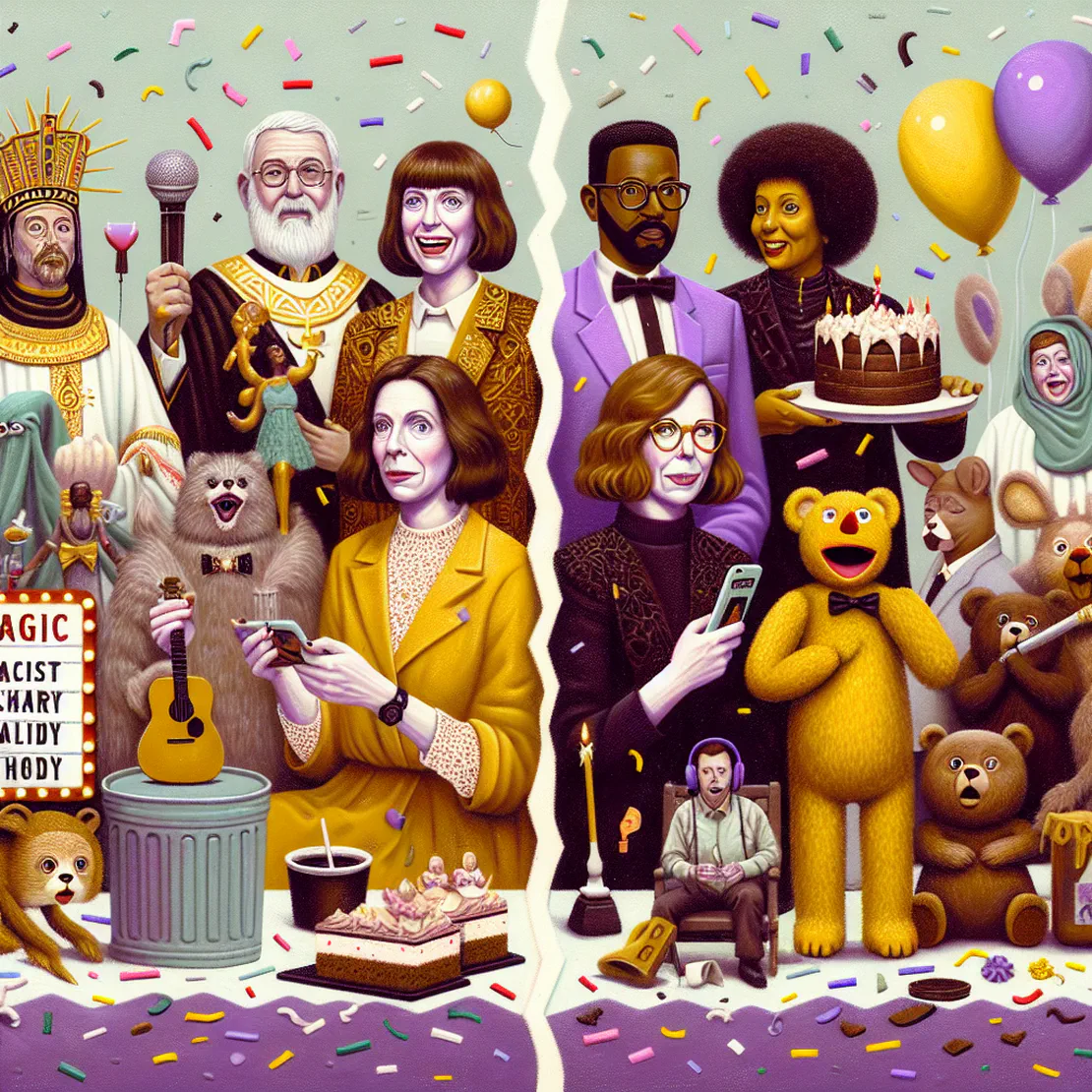
Sitting With Uncertainty
- Hidden Brain
- Politics , America
- September 30, 2024
Table of Contents
At a Glance
-
Diversity of Psychological Tendencies - “all the details. There’s an advantage to coming up with explanations for things and advantages to sitting with ambiguity.” This highlights the complexity of human psychology and the need for different approaches in understanding problems.
-
Societal Implications of Psychological Traits - “A society that only has people who are tolerant of ambiguity and high in need for cognition, well, it might be a society that has art and music and innovation, but it might also be a society that could be attacked and taken over very quickly.” This emphasizes the importance of balance in societal traits to ensure both innovation and safety.
-
Media Influence on Perception - “She’s the author of Wrong, How Media, Politics, and Identity Drive Our Appetite for Misinformation, and Irony and Outrage, the Polarized Landscape of Rage, Fear and Laughter in the United States.” This introduces Dana’s work on how media shapes public opinion, which is crucial for understanding the current media landscape.
-
Engaging with Complex Ideas - “Maybe use these ideas as an opportunity for deeper conversation.” This suggests the importance of going beyond surface-level discourse to understand deeper underlying issues in society.
-
Impact of Psychological Traits on Political Views - “need for closure is associated with more negative opinions of transgender people, transgender candidates, and transgender rights.” Highlights how psychological traits can significantly influence political and social views.
-
Satirical Commentary on Racism - “I don’t even see race, not even my own. People tell me I’m white and I believe them because I just devoted six minutes to explaining how I’m not a racist.” This funny yet poignant quote from Stephen Colbert’s satirical persona illustrates the absurdity of denying inherent biases.
-
Role of Need for Cognition in Politics - “for people who were highest in need for cognition, they tended to be the least supportive of highly punitive measures in response to criminals” This point underscores how a willingness to engage with complexity can lead to more nuanced views on justice and punishment.
-
Psychological Profiles and Media Consumption - “liberal shows tend to have a very different feel to them than conservative shows.” This reflects on how different psychological traits can lead to distinct preferences in media consumption, affecting how information is processed and understood.
-
Personal Anecdote on Uncertainty - “I’m a lot of things, but I’m not a brain surgeon.” Dana humorously underscores her desperate attempts to find answers during a personal crisis, highlighting human behavior in face of uncertainty.
-
Need for Closure and Art Preferences - “people who are high in tolerance for ambiguity are the ones who are most appreciative of abstract art” This point connects psychological traits with aesthetic preferences, providing insight into why different people enjoy different types of art.
What to Do
-
‘Embrace complexity in thinking’ - Encouraging a high need for cognition allows individuals to consider more complex and systemic reasons behind actions, rather than simplifying them into binary conclusions.
-
‘Recognize the value of both certainty and ambiguity’ - Understanding that both the need for closure and a tolerance for ambiguity have their strengths and weaknesses helps to appreciate diverse perspectives and solutions in society.
-
‘Be open to different problem-solving approaches’ - Acknowledging that different problems may require different solutions helps in tapping into various tendencies and perspectives depending on the situation.
-
‘Engage in deeper conversations about beliefs’ - Encourages understanding the underlying reasons behind different beliefs, which can lead to more meaningful interactions and less conflict.
-
‘Appreciate the role of humor and satire in communication’ - Understanding the cognitive complexity involved in processing irony and satire can enhance appreciation of these forms of expression and their role in critical thinking.
-
‘Take time to think thoroughly when possible’ - For those not constantly under threat, indulging in the luxury of deep thinking can lead to more well-considered decisions and a richer intellectual life.
What to Get
Summary
In this episode of the Hidden Brain podcast, host Shankar Vedantam explores the complex psychological landscape of how we handle uncertainty through a conversation with Dana Young, a researcher and professor who studies media, public opinion, and political satire at the University of Delaware. The episode delves into the impact of our tolerance for ambiguity on our lives, examining everything from personal relationships to political affiliations.
Dana Young discusses her book “Wrong, How Media, Politics, and Identity Drive Our Appetite for Misinformation” and her journey through academia and improv comedy. She shares personal anecdotes that highlight her struggles and realizations regarding uncertainty and decision-making. In one story, Young recounts a critical moment where she chose a stable academic path over a precarious career in comedy after advice from Stephen Colbert, illustrating her personal confrontation with uncertainty.
The conversation also touches on how psychological traits like the need for closure and cognition influence our political beliefs and social attitudes. For instance, Young’s research found that people with a high need for closure tend to have more negative views on transgender rights, reflecting a discomfort with ambiguity and fluidity in gender identity.
Vedantam and Young discuss the broader implications of these psychological traits for society. They suggest that a balance between the need for closure and cognition is essential for a healthy, dynamic society. Too much need for closure can lead to rigid, authoritarian systems, while too much openness to ambiguity can lead to instability and lack of coherence in policies and social norms.
Overall, the episode provides a deep dive into the psychology of uncertainty, offering insights into how our minds cope with the unknown and how this affects our behavior and societal structures. It invites listeners to reflect on their own attitudes towards uncertainty and to consider the broader consequences of these attitudes in social and political contexts.


